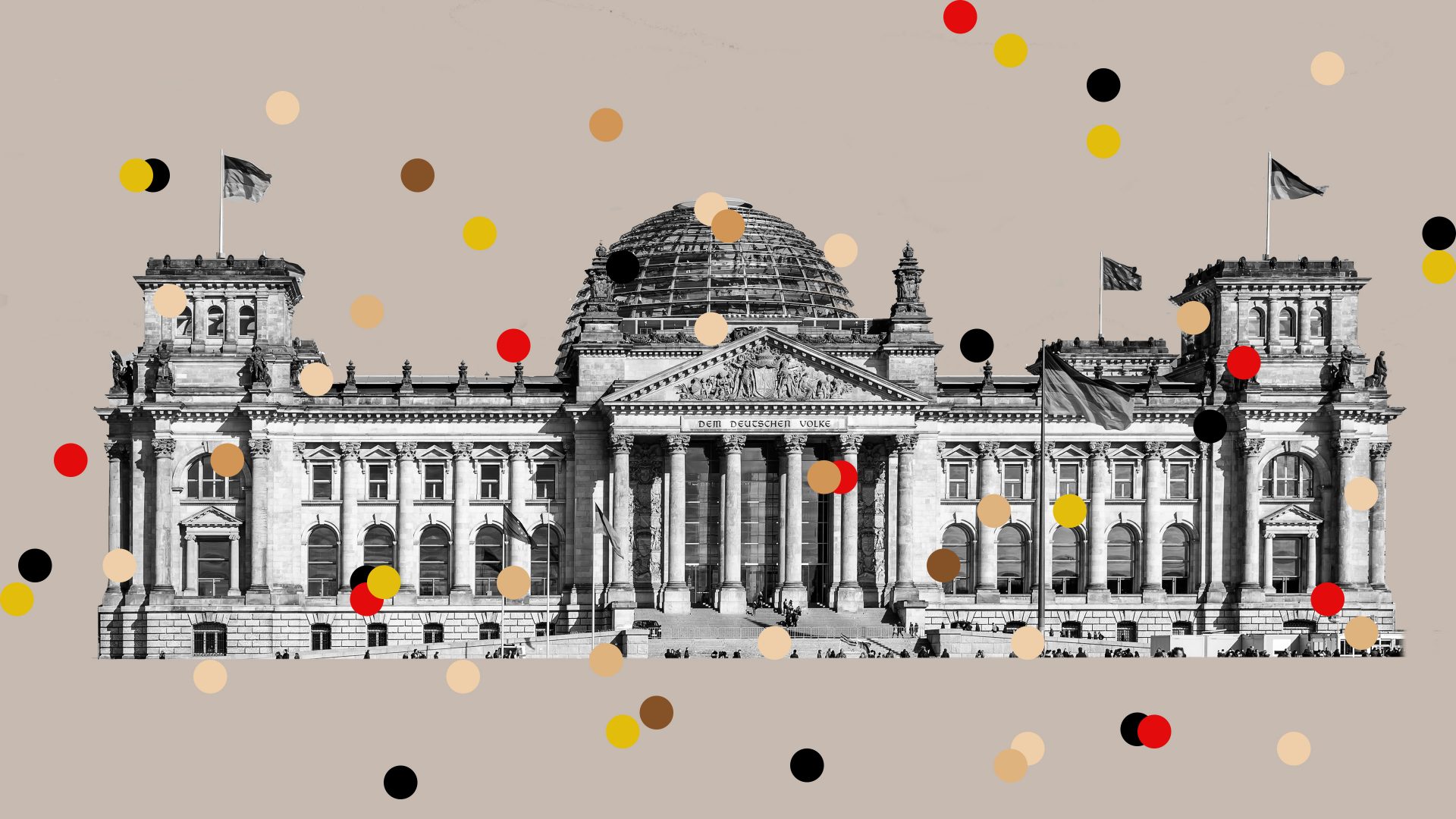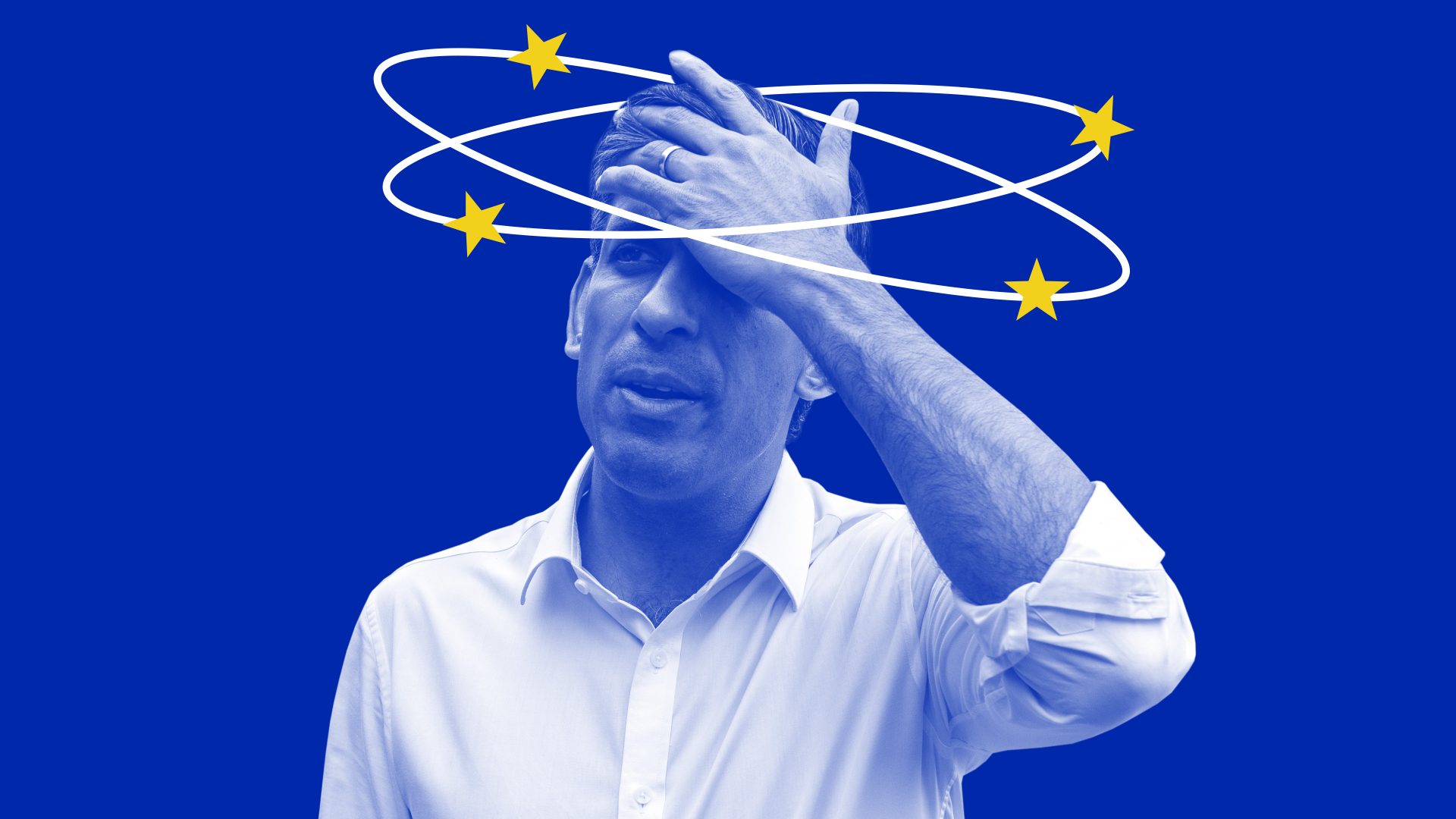When news broke about your (latest) prime minister, a thought crossed my mind: could there be a Bundeskanzler Sunak, too?
I realise Rishi Sunak wasn’t destined to enter No 10. And I find it rather telling that the Tories first allowed Liz Truss to have a go, even though she was always likely to mess things up. So Sunak as PM does seem like the result of a complex domino cascade.
The stark difference to Germany is: Sunak already had a front-row seat from which to jump to centre stage. And he isn’t alone. As members of ethnic minorities, Sadiq Khan, Priti Patel, Suella Braverman, Kwasi Kwarteng have all climbed party and government ranks to positions of power in the UK. You have even had cabinet members from diverse religious backgrounds succeeding one another: Sajid Javid and Sunak as chancellors of the Exchequer.
In contrast, in the German political front row you find mostly uniformity.
The Greens (their co-chair has Iranian roots) may be top of the diversity class, but it’s definitely a bottom set. When the current government was formed, Süddeutsche Zeitung rightly asked: “A cabinet of Olafs and Annalenas?”
It would be, were it not for Cem Özdemir, a veteran Green party foreign policy expert, who is now farming minister. He is our first and only cabinet minister whose parents were born outside the EU. It is a start.
I asked Serap Güler, MP for the opposition party CDU, how she felt about Özdemir’s appointment: “Happy. I was delighted when he became minister last year. As I was in 1994, when he first entered parliament. It was a strong signal in a tense time – after the racist arson attack in Solingen.” Five members of a Turkish family were killed that night.
Güler remembers: “There was uproar in our community. Many, my parents included, thought about leaving the country because they didn’t feel safe any more. So when one of us entered the Bundestag a year later, that was really important.”
Immigration is for real here: more than 20% of Germans have at least one parent who was born without a German passport – mostly from Turkey, followed by Poland, Russia, Kazakhstan, Romania, Italy, Syria and Greece.
But this reality still isn’t reflected well in our political class, neither at federal nor at state level. The 16 state governments are even more homogenous than the federal one.
At the local level, only three out of 337 mayors of larger cities have foreign roots (an Austrian among them).
And while political parties like the Social Democrats do have a significant number of MPs with “Migrations-hintergrund” (a migration background) they lack ethnically diverse VIPPs (very important party people).
All in all, we are light years behind the UK when it comes to ethnic and religious diversity in positions of power. But why?
Güler, who belongs to her party’s national executive committee, is the only MP with non-EU roots in the CDU parliamentary group of 200-plus members: “Until 10, 15 years ago we were looked upon as something exotic. Today it is easier. But we still depend too much on other people’s networks, because we don’t have our own ones, neither in the party nor in society.” Yet she insists: “The German party system is open to everyone.”
Open, but not necessarily attractive. There’s a saying: “When three Germans meet, they immediately think of forming an association.”
Even less inviting to a political career is of course the sad but obvious fact that ethnic minorities in politics regularly face hatred, racism and even death threats.
And there’s another obstacle: unwritten party rules demand a proportional regional quota of sorts (competence at times ranking below affiliation with a regional branch).
Then there’s the gender quota.
And the East German factor, another underrepresented ethnic minority in German politics.
The most significant difference (well, apart from an Oxford degree not being a prerequisite for a successful political career in Germany) may be: for years now, UK politicians with diverse roots have performed high-level functions in home affairs, health, transport, treasury.
Their German counterparts are often placed in roles overseeing integration issues. Which isn’t a ticket to a political career boost.
Much as I’d like to be more of a diversity optimist, I’m afraid that in the foreseeable future, a visibly non-Germanic head of our government is as likely as Vladimir Putin receiving the Nobel peace prize. But maybe we can learn from you.




